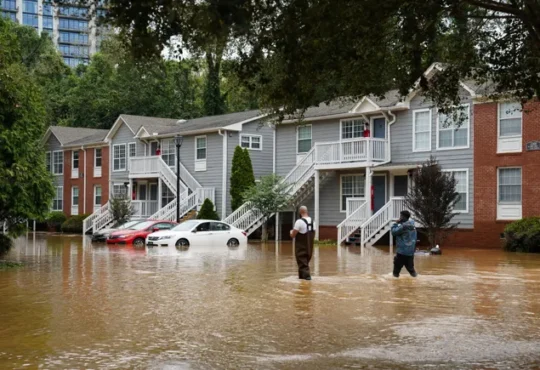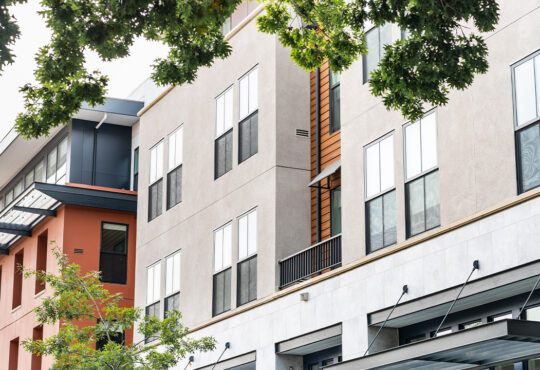How Landlords Can Support Retail Tenants Through Better Property Management Practices

If you’ve owned commercial property long enough, you’ve probably seen both kinds of tenants: the ones who send rent like clockwork and the ones who turn your phone into a stress device. The difference between the two isn’t always about sales or location. More often than not, it’s about management.
And yes, that means your management, or your property manager’s.
Because here’s the thing: in retail real estate, success isn’t just measured by square footage leased. It’s measured by the health of the businesses operating inside those spaces. When tenants thrive, they renew. When they struggle, vacancy signs start multiplying faster than you can say “triple net.”
So, how can landlords actually help their retail tenants do better without playing business coach or therapist? Let’s talk about what good property management really looks like when your bottom line depends on someone else’s ability to stay open.
1. Start with Real Communication (Not Just “Per My Last Email”)
Most tenant-landlord tension begins where communication ends. It’s easy to assume tenants will “let you know” when there’s an issue. Spoiler: they rarely do until it’s already an emergency.
Property managers who stay ahead of this don’t just react; they listen. They walk the property. They notice the flickering sign before it becomes a safety hazard or the leaky ceiling before it becomes a lawsuit. They set up quarterly check-ins not to nag, but to ask questions like: How’s foot traffic lately? Any maintenance issues we haven’t heard about?
According to an award-winning Los Angeles property management company, proactive communication is one of the biggest factors in tenant retention. Their team often steps in to “translate” between landlords and tenants, helping both sides understand not just what’s broken, but what’s at stake. It’s less about fixing pipes and more about preventing relationship cracks. Learn more here.
And really, that’s the quiet superpower of good property management, building trust before it’s tested.
2. Don’t Treat Maintenance Like an Expense. It’s Marketing.
Here’s a hard truth: tenants can sense neglect. They might not say it outright, but peeling paint, flickering lights, and sluggish HVAC systems send a message louder than any rent reminder ever could.
If you’re managing a shopping center or mixed-use building, that message doesn’t just affect one tenant. It affects the entire ecosystem. Shoppers notice. Other retailers notice. Suddenly, your “prime retail location” starts feeling a bit… tired.
A great property manager views maintenance as a form of marketing. A clean, functional, well-lit property attracts customers and better tenants. Preventive maintenance also saves you from the kind of “surprise” repairs that drain budgets and goodwill simultaneously.
Plus, in a time when many retailers are fighting to bring shoppers back from their screens, even small environmental improvements, like modernized restrooms or better exterior lighting, can make a measurable difference.
3. Understand the Business, Not Just the Lease
Every retail tenant has a rhythm. A coffee shop thrives on morning rushes; a boutique depends on weekends. Good property management practices take those rhythms into account.
It sounds simple, but timing repairs, inspections, or common-area work around a tenant’s busiest hours shows you actually get it. That understanding builds trust, and trust, in retail, is currency.
It also means recognizing when a tenant might be struggling and stepping in early. A small adjustment in lease terms, shared marketing initiatives, or even flexible payment arrangements during a slow quarter can prevent a costly turnover.
Some property managers have even started hosting informal “tenant roundtables,” where retailers share insights and challenges. You’d be surprised how much goodwill (and cross-promotion) comes out of a single meeting with free coffee.
4. Balance Tech with Touch
We live in the era of property portals, automated reminders, and maintenance request apps. All great tools, but not a replacement for human connection.
Tenants don’t want to feel like they’re just another ticket in your system. Yes, digital efficiency helps, but something is reassuring about a real person who checks in once in a while, even when nothing’s wrong.
Think of tech as a framework, not a firewall. Use it to streamline, not to disappear. The best property managers blend digital ease with personal accountability, creating a management experience that feels both modern and approachable.
5. Create Shared Wins (Because You’re in This Together)
When landlords and tenants think in silos, both sides lose. But when they collaborate, interesting things happen.
For example, if your retail space is part of a downtown district, you might co-sponsor local events, sidewalk sales, or holiday lighting with your tenants. It boosts traffic for them, community reputation for you, and visibility for the property as a whole.
Small gestures go a long way, too. Featuring tenants on your property’s social media page, creating cross-promotional signage, or even offering short-term pop-up opportunities for underused spaces keeps your property buzzing and your tenants feeling supported.
A well-managed retail property becomes more than just real estate. It becomes part of the community fabric. That’s something online retail can’t replicate.
6. Respond Like It’s Your Business on the Line (Because It Is)
Every retail tenant knows the frustration of waiting days for a response about something urgent. And every landlord knows how fast “just a small issue” can turn into a rent dispute.
Responsiveness, especially in property management, is the silent deal-breaker.
If you treat tenant concerns with the same urgency you’d give your own business, you’ll never lose a good tenant to neglect. That’s one reason landlords often lean on property managers: to ensure someone’s always paying attention when you can’t.
Quick, thoughtful follow-up tells tenants their business matters. It also keeps your reputation and your occupancy rate healthy.
7. Don’t Underestimate the Power of Empathy
This part might sound soft, but it’s the hardest skill of all: empathy. Retail tenants live in a world of fluctuating sales, unpredictable foot traffic, and relentless competition.
Sometimes, the best thing a landlord can offer isn’t a rent concession or new signage, it’s understanding. A simple acknowledgment that you get how tough the market is can turn an adversarial relationship into a collaborative one.
If you want to see this kind of relationship management in action, take a look at how San Francisco landlords use communication to strengthen tenant relationships. It’s a great example of how being proactive with communication can transform conflict into cooperation.
Empathy doesn’t cost a cent, but it pays dividends in tenant loyalty.
The Bottom Line
Supporting your retail tenants doesn’t mean becoming their business partner. It means managing your property in a way that helps them succeed, because their success fuels yours.
Whether through preventive maintenance, responsive communication, or a property manager who genuinely listens, better property management practices are one of the most underused competitive advantages in retail real estate.
And perhaps the simplest way to put it? When you take care of your tenants, they take care of your rent roll. Everyone wins.






